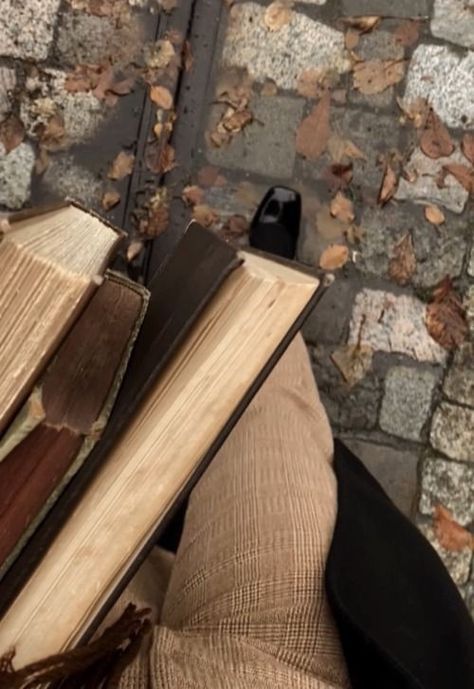#master of science in finance
Explore tagged Tumblr posts
Text
Discover the Benefits of a Master of Science in Finance from Charisma University

Are you aiming to elevate your career in finance? Charisma University’s Master of Science in Finance program offers an exceptional opportunity to gain advanced knowledge and skills in the finance sector. Our comprehensive curriculum is designed to provide a deep understanding of financial principles, analytical tools, and real-world applications that are critical for success in today's dynamic financial environment.
At Charisma University, we emphasize both theoretical knowledge and practical experience. Our program covers essential topics such as corporate finance, investment analysis, financial modeling, risk management, and international finance. This balanced approach ensures that our graduates are well-prepared to tackle complex financial challenges and excel in various finance-related roles.
Our faculty comprises experienced professionals and academics who bring a wealth of expertise and industry insights into the classroom. They are dedicated to mentoring students and providing personalized guidance to help them achieve their career goals. Moreover, the small class sizes at Charisma University foster a collaborative learning environment, encouraging active participation and networking among peers.
Another significant advantage of our Master of Science in Finance program is its flexibility. Whether you are a working professional or a recent graduate, our program is designed to accommodate your schedule with options for part-time or full-time study. Additionally, our online learning platform enables you to access course materials and engage with instructors and classmates from anywhere in the world.
Join us at Charisma University and take the next step towards a rewarding career in finance. Our Master of Science in Finance program will equip you with the skills and knowledge needed to thrive in the competitive financial industry. Apply today and unlock your potential with Charisma University.
#charisma university#university#online university#online learning#online education#online courses#books & libraries#Master of Science in Finance
0 notes
Text
Global MS in Business Analytics - Northwood University - Northwest Executive Education
Northwood's Global MSBA focuses on data mining, modelling, and analytics, aiming to resolve complex problems. Ensure improved business decisions through a proficiency with tools such as SAS, Python, Bitbucket, GitHub, and R. Enhance your problem solving skills, predictive analysis, and learn how to improve business processes
https://northwest.education/northwood-global-master-of-science-in-business-analytics/
#Ms-in-global-finance-northwood-university#ms-in-finance-northwood-university#Global-Finance-MSC#international-finance#global masters in finance ranking northwood#master of science in finance#masters in finance#ms in finance#executive education#Northwest Executive education
0 notes
Text

Tma au where nothing is wrong ever and Jon gets to pet as many cats as he likes
#tma#the magnus archives#jonathan sims#tim stoker#sasha james#its just an office comedy at this point#idk the horrors are still there but now it's the horrors of genuinely needing a masters for archival sciences#BE SO FR what the hells is the point of a masters#listen this is my gripe about the educational ladder you have to climb in order to even think about going to library sciences#and getting some sort of guaranteed work off it#oh martin got through alright by lying but he got real lucky with this boss being a literal cult leader#but nooooo I have to finish my bachelors and get another 30k or so in debt BAR student finance#as if med school isnt already a scam!!!#and furthermore--#oh old art tag
556 notes
·
View notes
Text
most people try to live their lives in a god honouring way. i am trying to live it in a spock honouring way (and still failing but it's the thought that counts right)
#born to be a woman in stem. forced to study financial mathematics.#it's not my fault ok#i'm not rich enough to afford a masters degree or med school or any fancy shit 😭#i get one undergrad degree and i gotta make it count#and as it stands. no science job a) pays well and b) is attainable with only an undergrad degree#at least i'm doing financial MATH and not just fucking finance right#i would get sad without math i think#anywayy#limebug.txt#star trek tos#star trek#spock
10 notes
·
View notes
Text
🧍
#so for the mutuals that have been keeping up with the cute little tidbits i’ve been posting about my life—#i fucking hate my major#& after almost crying myself to the point of nausea again i finally did some more research on changing my major#i think i’m going to change my major from information systems to business administration#basically info systems is business & computer science & the bulk of 90% of my issues come from coding#like yes i also dislike my business classes & excel sucks but i find those classes to be easier & manageable compared to my coding ones#not to mention it’s mostly within the wheelhouse of my current major so it only adds two classes to my current grad plan#like yeah there’s gonna be more finance classes which i hate like i hate the math/accounting aspect#but there’s also more marketing type classes where i might actually be able to have a little fun and show some creativity#i imagine my dad will be upset with me—he wants me to stay in this major/not ‘be a quitter’/just ‘try harder’ to learn useful skills#but the alteration isn’t that bad & he can still help me with excel or whatever else#so the change should be good. i still plan to stick it out this semester because i think it’ll be a mess if i drop my classes#not to mention i still need like half the classes i’m taking rn#but since i’m getting my masters in library science it’s one of those things where it literally doesn’t matter at all what—#i get my bachelor’s in#anyways#rose.txt
3 notes
·
View notes
Text
Someone on LinkedIn messaged me saying I seemed like an ideal candidate for a position and I checked the website and I absolutely do NOT qualify at all like ???
Also just the company name threw me off immediately. Like probably some international company that has a Dutch branch but sadly for them they use the Dutch acronym for STI in their company name. Like why would you do that??
Website is also just BAD. Like wow I am not even gonna hop on a call for more info with this one because NOPE
#like last offer through linkedin was also not what i wanted but at least i was like sure let's hear some info#and here i am like#please leave me alone#but also just wtf#your website says they are looking for people with applied science degrees in like finance or business#i have a master of science in communication#even within my own field i get rejected because of my theoretical background#which is part of why i am putting my hope in research jobs now because that is the one practical thing i am trained in
1 note
·
View note
Text
academia sign as 𝔞𝔠𝔞𝔡𝔢𝔪𝔦𝔞 𝔞𝔢𝔰𝔱𝔥𝔢𝔱𝔦𝔠𝔰
academia (829)
𝔠𝔥𝔞𝔬𝔱𝔦𝔠 𝔞𝔠𝔞𝔡𝔢𝔪𝔦𝔞


aries / 1st house academia: aries in academia approaches learning with enthusiasm and a pioneering spirit. they thrive in competitive environments, enjoying subjects that allow them to take the lead, such as sports science, entrepreneurship, or anything requiring bold, innovative thinking. their learning style is hands-on and action-oriented, preferring to dive into projects rather than sit through lectures. quick to grasp new concepts, aries students excel in fast-paced, dynamic settings where they can showcase their initiative and drive. they are natural leaders in group work, often inspiring others with their energy and passion.
chaotic academia vibes: red bull, coffee, late-night study sessions, messy desk, sticky notes everywhere, highlighters galore, backpack overflowing, headphones tangled, running late, cramming, competitive studying, impulsive learning, last-minute cramming, energetic study sessions, motivational posters, pomodoro technique, study groups, mind maps, flash cards, music playlists
major & minor in college: history, english, psychology, theater, business, creative writing, philosophy, computer science, art history, sociology
𝔡𝔞𝔯𝔨 𝔞𝔠𝔞𝔡𝔢𝔪𝔦𝔞


taurus / 2nd house academia: taurus in academia is methodical and steady, approaching learning with patience and determination. they excel in subjects that involve tangible results or a connection to nature, such as agriculture, culinary arts, or finance. taurus students prefer a structured learning environment, where they can take their time to absorb information deeply and thoroughly. they have a strong memory and excel in retaining facts, often mastering subjects through repetition and consistent effort. their learning style is practical and grounded, focusing on real-world applications and long-term value.
dark academia vibes: leather-bound notebooks, vintage fountain pen, cozy sweater, warm coffee, comfortable armchair, candles, classical music, antique bookshelves, quiet library, natural light, slow & steady approach, consistent studying, structured routine, mindful studying, note-taking, reading extensively, researching deeply, essay writing, critical thinking, patience & perseverance,
major & minor in college: literature, history, art history, philosophy, classical studies, music, latin, greek, anthropology, environmental studies,
scorpio / 8th house academia: scorpio in academia is intensely focused and driven, diving deep into subjects that fascinate them, especially those involving psychology, criminology, or anything that uncovers hidden truths. they are natural researchers, drawn to mysteries and complexities, excelling in environments that require investigative skills and critical thinking. scorpio students prefer to study in private, where they can immerse themselves fully without distractions. they have a talent for uncovering details that others might overlook, and their determination to master a subject is unmatched. passionate and resilient, scorpio learners often emerge as experts in their chosen fields.
dark academia vibes: black coffee, leather jacket, intricate jewelry, vintage records, haunted library, gothic architecture, mysterious aura, intense gaze, quiet solitude, deep thoughts, intense focus, deep research, analytical thinking, critical analysis, debating, persuasive writing, problem-solving, independent study, night owl, passionate learning,
major & minor in college: psychology, philosophy, criminal justice, history, political science, sociology, anthropology, mythology, astronomy, creative writing,
𝔱𝔥𝔢𝔞𝔱𝔯𝔢 𝔞𝔠𝔞𝔡𝔢𝔪𝔦𝔞


gemini / 3rd house academia: gemini in academia is curious and versatile, thriving in environments where they can explore a wide range of subjects. they are natural communicators, excelling in fields like journalism, linguistics, or social sciences, where their quick wit and love for information can shine. gemini students prefer a dynamic, interactive learning environment, enjoying discussions, debates, and collaborative projects. their learning style is fast-paced and adaptable, allowing them to pick up new concepts with ease and shift focus between topics effortlessly. always eager to learn something new, gemini keeps their mind sharp by continuously seeking knowledge in various fields.
theatre academia vibes: script book, makeup bag, costumes, props, rehearsal space, stage lights, backstage passes, playbills, acting classes, impromptu performances, versatility, adaptability, improvisation, memorization, public speaking, character analysis, script analysis, ensemble work, storytelling, critical thinking
major & minor in college: theater, english, creative writing, communication studies, film studies, music, dance, history, psychology, sociology,
𝔠𝔬𝔷𝔶 𝔞𝔠𝔞𝔡𝔢𝔪𝔦𝔞


cancer / 4th house academia: cancer in academia is intuitive and emotionally connected to their studies, often drawn to subjects that resonate with their personal experiences, such as history, literature, or psychology. they excel in environments that feel nurturing and supportive, preferring to learn in a space where they feel safe and comfortable. cancer students have a strong memory, especially for details that evoke an emotional response, and they often approach learning with empathy and care. their learning style is reflective and deep, focusing on understanding the emotional and human aspects of any subject. sensitive to the needs of others, cancer can also be a compassionate and supportive peer in group settings.
cozy academia vibes: knitting needles, teacup, soft blanket, candles, cozy armchair, bookshelf filled with sentimental books, family photos, journal, soft music, homemade snacks, emotional intelligence, empathy, nurturing oneself, creating a comfortable study space, mindful studying, journaling, connecting with others, supporting others, patience & perseverance, emotional regulation
major & minor in college: english, history, psychology, sociology, social work, counseling, child development, family studies, art history, creative writing
𝔯𝔬𝔶𝔞𝔩 𝔞𝔠𝔞𝔡𝔢𝔪𝔦𝔞


leo / 5th house academia: leo in academia is confident and expressive, thriving in subjects where they can showcase their creativity and leadership, such as performing arts, literature, or leadership studies. they enjoy being at the center of discussions and excel in environments where their ideas and talents are recognized. leo students are passionate learners who bring enthusiasm to their studies, often inspiring others with their energy and charisma. their learning style is dynamic and interactive, preferring presentations and group projects where they can shine. with a natural flair for storytelling and self-expression, leo often excels in areas that allow them to be both creative and influential.
royal academia vibes: crown-shaped stationery, velvet robes, gold jewelry, vintage fountain pen, grand library, ornate furniture, elegant calligraphy, classical music, high-quality textbooks, personalized study supplies, confidence, leadership, public speaking, motivation, goal setting, networking, presentation skills, time management, creativity, passion
major & minor in college: history, political science, business, theater, art history, music, philosophy, classical studies, public relations, creative writing
𝔟𝔬𝔱𝔞𝔫𝔦𝔠𝔞𝔩 𝔞𝔠𝔞𝔡𝔢𝔪𝔦𝔞


virgo / 6th house academia: virgo in academia is analytical and detail-oriented, excelling in subjects that require precision and critical thinking, such as mathematics, science, or technical writing. they have a strong work ethic and prefer structured learning environments where they can methodically work through complex problems. virgo students are diligent researchers, often going above and beyond to ensure they fully understand a topic, and they have a knack for organizing information logically. their learning style is meticulous and focused, thriving on clear instructions and practical applications. with a keen eye for detail, virgo often excels in areas that demand accuracy and thoroughness.
botanical academia vibes: herbarium, plant journal, botanical prints, terrarium, gardening tools, natural light, plant-based stationery, herbal tea, nature-inspired décor, organized study space, organization, planning, time management, detail-oriented approach, note-taking, researching, problem-solving, critical thinking, patience, perseverance
major & minor in college: biology, environmental science, botany, horticulture, chemistry, agriculture, nutrition, health sciences, art history, creative writing
𝔯𝔬𝔪𝔞𝔫𝔱𝔦𝔠 𝔞𝔠𝔞𝔡𝔢𝔪𝔦𝔞


libra / 7th house academia: libra in academia is balanced and diplomatic, drawn to subjects that involve relationships, aesthetics, and justice, such as law, art, or social sciences. they excel in collaborative learning environments, enjoying discussions and group projects where they can exchange ideas and mediate differing opinions. libra students have a natural talent for seeing multiple perspectives, which makes them excellent at analyzing complex issues and finding harmonious solutions. their learning style is interactive and social, thriving in settings that allow for cooperation and mutual respect. with a strong sense of fairness and a love for beauty, libra often excels in areas that combine intellectual rigor with creativity.
romantic academia vibes: love letters, poetry collection, vintage jewelry, soft/pastel colors, romantic novels, flower arrangements, classical music, art galleries, beautiful stationery, cozy cafes, collaboration, harmony, diplomacy, balance, aesthetic appreciation, empathy, persuasion, critical thinking, creativity, open-mindedness
major & minor in college: english, history, art history, philosophy, psychology, sociology, communication studies, music, creative writing, design
𝔞𝔡𝔳𝔢𝔫𝔱𝔲𝔯𝔬𝔲𝔰 𝔞𝔠𝔞𝔡𝔢𝔪𝔦𝔞


sagittarius / 9th house academia: sagittarius in academia is adventurous and curious, drawn to subjects that expand their horizons, such as philosophy, travel, or global studies. they thrive in environments that offer freedom and exploration, preferring to learn through experience, travel, and broad, open-ended discussions. sagittarius students have a natural enthusiasm for big ideas and are often inspired by the pursuit of knowledge that challenges conventional thinking. their learning style is spontaneous and wide-ranging, excelling in areas where they can explore different cultures, beliefs, and philosophies. with an innate love for wisdom and truth, sagittarius often excels in fields that encourage lifelong learning and intellectual growth.
adventurous academia vibes: travel journal, global map, adventure novels, passport, backpack, camping gear, telescope, world atlas, foreign language textbooks, wanderlust-themed stationery, curiosity, open-mindedness, exploration, adaptability, risk-taking, global perspective, intercultural communication, problem-solving, independent study, passion for learning
major & minor in college: history, geography, anthropology, philosophy, foreign languages, international studies, environmental science, economics, creative writing, journalism
𝔴𝔦𝔫𝔱𝔢𝔯 𝔞𝔠𝔞𝔡𝔢𝔪𝔦𝔞


capricorn / 10th house academia: capricorn in academia is disciplined and strategic, favoring subjects that offer practical applications and long-term value, such as business, engineering, or finance. they excel in structured, goal-oriented environments where they can set clear objectives and work methodically towards achieving them. capricorn students have a strong work ethic and are adept at managing their time efficiently, often thriving on detailed planning and rigorous analysis. their learning style is focused and persistent, with a preference for mastering foundational concepts before advancing. with a keen sense of responsibility and determination, capricorn often excels in areas that require patience and sustained effort.
winter academia vibes: thick coat, scarf, warm coffee, cozy sweater, planner, bookshelf filled with textbooks, quiet study space, pen & paper, minimalist décor, structured routine, discipline, time management, goal setting, planning, persistence, problem-solving, critical thinking, researching, note-taking, long-term planning
major & minor in college: business, economics, law, political science, accounting, engineering, computer science, mathematics, history, philosophy
𝔣𝔲𝔱𝔲𝔯𝔦𝔰𝔱𝔦𝔠 𝔞𝔠𝔞𝔡𝔢𝔪𝔦𝔞


aquarius / 11th house academia: aquarius in academia is innovative and independent, gravitating towards subjects that involve technology, future trends, or social change, such as engineering, environmental science, or sociology. they thrive in learning environments that encourage original thinking and unconventional approaches, often preferring to explore new ideas and challenge established norms. aquarius students are skilled at grasping complex, abstract concepts and enjoy engaging in collaborative projects that push boundaries and promote collective progress. their learning style is progressive and exploratory, with a strong inclination towards experimenting with novel methods and solutions. with a keen interest in improving the world, aquarius often excels in fields that foster creativity and forward-thinking.
futuristic academia vibes: smartwatch, laptop, tech gadgets, futuristic eyewear, minimalist design, neon lights, sci-fi novels, futuristic architecture, virtual reality headset, sustainable products, innovation, problem-solving, critical thinking, future-oriented thinking, collaboration, interdisciplinary learning, ethical considerations, lifelong learning, adaptability, social consciousness
major & minor in college: computer science, engineering, physics, astronomy, artificial intelligence, environmental science, sociology, political science, psychology, philosophy
𝔬𝔠𝔢𝔞𝔫 𝔞𝔠𝔞𝔡𝔢𝔪𝔦𝔞


pisces / 12th house academia: pisces in academia is imaginative and intuitive, drawn to subjects that explore the arts, spirituality, or the human psyche, such as creative writing, music, or psychology. they excel in environments that allow for introspection and creative expression, often thriving in less structured settings that encourage personal interpretation and emotional depth. pisces students have a unique ability to grasp abstract concepts and connect disparate ideas, making them skilled at synthesizing information in innovative ways. their learning style is fluid and adaptable, with a preference for exploring topics through personal experiences and intuitive insights. with a deep sense of empathy and creativity, pisces often excels in fields that involve understanding and expressing the complexities of the human experience.
ocean academia vibes: seashells, aquarium, ocean-themed stationery, beach towel, nautical decor, marine biology books, beach reads, ocean-inspired jewelry, dreamcatcher, calming music, intuition, empathy, creativity, imagination, meditation, mindfulness, visualization, dream journaling, connection with nature, emotional intelligence
major & minor in college: marine biology, oceanography, environmental science, psychology, art history, creative writing, music, philosophy, sociology, religious studies,
all observations belong to @pearlprincess02
#academia#aries academia#taurus academia#gemini academia#cancer academia#leo academia#virgo academia#libra academia#scorpio academia#sagittarius academia#capricorn academia#aquarius academia#pisces academia#astrology#astro notes#astro observations#astro community#astrology observations#astro tumblr#astrology notes#astroblr#astrology aesthetic#dark academia#chaotic academia#theatre academia#cozy academia#romantic academia#winter academia#ocean academia
528 notes
·
View notes
Link
Who pays the piper?
#politics#finance#science#technology#entrapment#blackmail#social control#corruption#protection racket#organized crime#CIA#influence#puppet masters#books
0 notes
Text
A Guide to Mastery: Finding Your Life's Work




Mastery is what we hope to attain. We hope to get a point where we become master of our fields, experts of our work, and mentors to younger people. But the big question we ask ourselves is "what should I do?" "what can I do?" "what is my purpose in life?" and that is a very big question that we might spend our entire lives trying to figure out.
It is difficult now, especially when we hear people talk about their careers, we see updates on people's career changes on LinkedIn and everyone is vying for a job in big tech, big law, consulting, Wall Street and you feel left out, not good enough, in fact discouraged.
However, you can find fulfillment by taking this self-discovery one step at a time, at a pace that best suits your skills, and still rise to the top.
Here is how to find your Life's work:
Look back to your childhood
Often to figure out what you want to do or who you want to become you have to look back to your past, your childhood. What made you tick? What classes were most fun for you? Who did you enjoy watching or spending time with growing up? The answers can give you a peek into the kind of life you want. Growing up I enjoyed reading biographies of people. I was obsessed with how they became successful and how they set themselves apart - now my writing mirrors that.
2. Find your niche
The uncertainty or discomfort you feel could be caused by not fitting into one field. You feel like you can do a lot more than there is out there. This is a great feeling. if you feel this way do not be discouraged. It is your life's journey to figure out the intersection of your interest. It is a sign that you should try out multiple things. Your career may become an amalgamation of your interest, ideas, disciplines, and fields. Here are some intersections that I found in people I admire:
Design + Technology - Steve Jobs- Apple Co-founder, Brian Chesky - Airbnb Co-founder
Food + Technology - Apoorva Mehta; co-founder Instacart
Culture + Commerce - Most architects, designers fit this category
Science + Art - Trip Hawkins; founder of Electronic Arts
Community + technology - Whitney Wolfe Herd; Founder of Bumble
Food + business: Kaspar Basse; founder of Joe & The Juice
Sportsmanship + design - Phil Knight; co-founder of Nike
Environmentalism + Sportsmanship - Yvon Chouinard; founder of Patagonia
These people are at the top of their fields. You can start by having a double major, or minoring in a totally different field (Art + Finance, Biology + Sports management etc)
3. Resist the pressure of the majority
There is always a group of people on the other side of your interest and skills - parents, friends, professors, peers who want something different from what you aspire to. You love art but they remind you that the pay is meagre, you want be a lawyer but they tell you, you are not good enough for law. You see, the salary you get paid for doing something you love should not stop you from getting started. You will eventually become so good that the value you provide will eventually command a huge compensation but for now bend down and learn.
4. Find a mentor
Once you get a glimpse of what you feel like you want to do. Find a mentor, your mentor could be distant or imminent. A distant mentor could be a renowned expert, a person you stumble upon through a book, an interview etc. Their story inspires you and you somehow you feel seen, you goals aren't so impossible anymore. The imminent mentors are the people you meet through school, work and whose work has some skills you need to learn for your Life's work. Your relationship with them or experience with them is the closest to reality of your Life's Work. Learn as much as you can in this process.
Welcome to my A Guide to Mastery series inspired by the book Mastery.
#self improvement#self love#growth#mindfulness#self development#beauty#education#classy#self care#self help#study motivation#mindset#mind control#emotional intelligence#booklover#book review#biography#motivation#self discipline#self worth
708 notes
·
View notes
Text
⋆♱✮☽ astrology and education ☽✮♰⋆



🗡 having issues with picking your major? or just interested to see which major/job would suit you? astrology can help!
🗡 the planet we'd have to look at is jupiter! jupiter represents higher education! you can also look into your 9th house or jupiter aspects with other planets.
🗡this post will go over jupiter placements and list out possible majors suited for you!
🗡jupiter 1st house: cosmetology, fashion designs, dermatology, design, craniology. (The first house is also represented by the skull or head!).
🗡jupiter 2nd house: business, agribusiness, dietetics, agriculture, music theory, vocal, any music major (music business, composition, jazz studies, etc.), visual arts.
🗡jupiter 3rd house: communications, media research, advertising, education, journalism, creative writing.
🗡jupiter 4th house: child development, geology, environmental science, architecture, genealogy, biology,
🗡jupiter 5th house: film, theatre, dance, art history, reproductive biology, sculpting, interior design.
🗡jupiter 6th house: nursing, sports management, sports science, kinesiology, health and exercise science, public health, physical therapy, healthcare administration, animal science, forensic science.
🗡jupiter 7th house: romance studies, law and legal studies, business law, political science, (because the 7th house can also be about connections and contracts!! Also Libra rules the 7th house and Libra represents Justice).
🗡jupiter 8th house: thanatology, master of psychotherapy and spirituality, finance, business administration, mortuary science.
🗡jupiter 9th house: tourism, international relations, international business, theology and religious studies, english (or any other languages), physics, astronomy, computer science, foreign policy, history, cultural anthropology, philosophy.
🗡jupiter 10th house: entrepreneurship, sales, marketing, public relations, entrepreneurial studies, economics, public administration.
🗡jupiter 11th house: computer engineering, electrical engineering, cybersecurity, information systems, sociology, social work, humanities, human services.
🗡jupiter 12th house: affective science, neuroscience, psychopathology, psychology, counseling/therapy, pharmaceutical sciences.
#kpop astrology#astrology#kpop birth chart#astro notes#astro placements#birth chart#career astrology#school astrology#jupiter#jupiter astrology#astrology readings#astrology chart#astro observations#astro community#mc astrology
61 notes
·
View notes
Text
Sir?
synopsis : boss!Grayson x secretary!reader
Reader's last name is mentioned for my brain's sake (its 2 am I need sleep)
tw: none
【🎱 🪐 🎸】
ty @lyrakanefanatic / @lyrakanefanaticwriting for the idea
Most kids get jobs working at an ice-cream parlour or walking dogs over the summer.
Me?
I was interning at The Hawthorne Foundation. For a Draco Malfoy knock-off we call Grayson Hawthorne.
I thought, going into the job that I wouldn't come out alive.
And to my surprise I was wrong.
Grayson Hawthorne.
The second Hawthorne brother, heir apparent, and second oldest grandson to Tobais Hawthorne.
He wasn't exactly meant to be the friendliest person, but you'd think being his secretary I'd know the truth huh?
Wrong.
The bastard barley ever spoke to me.
In all fairness I'd been told to keep my head down and mind my business. Because how could an 18-year-old girl look Grayson Hawthorne in the eye?
【🎱 🪐 🎸】
I walk into work and I see a blur of a person standing in front of my desk.
He's tall, he's wearing a suit, he's blonde, he's-
"Grayson Hawthorne?"
He's staring at me now. Its like I'm on trial for something.
"Ah, Ms. Caddel!"
"Can I help you... sir?"
"Yes, Mr. Rabbit seems to be out of office today, I'm the only one working on this floor and no one, including Oren has the keys."
"Well I'll have to apologise sir but I'm afraid I don't have them either." I apologise.
He looks once at the door and then back at me.
"Well, no matter, I'm sure the 3rd floor has a master key, I'll find it."
"Oh I can do that for you sir-" I offer.
"No, no, it's no trouble, and please call me Grayson."
"Ok uhm... Grayson, are you sure it's no bother?"
"Yes quite, thank you,"
He turns around towards the elevators and turns back last minute.
"Nice pants."
My eyebrows shot up.
"Thank you, sir."
"Grayson!" He calls back.
"Grayson." I murrmer.
【🎱 🪐 🎸】
I hear footsteps down the hall and see someone approaching.
"Ms. Caddel?"
"Yes, sir?" I ask upon realising it was Grayson.
"What're you doing in office this late?"
"I could ask the same, sir."
The corner of his mouth twitches and he says:
"Finances don't manage themselves. You?"
"Uni tuition doesn't pay itself."
He raises a brow. "You're a student?" He asks.
"Yes, well, I've gotten into NYU but I was offered this job for the summer and I wasn't about to pass up money I desperately need."
"What about your parents? Can't they help?" He asks.
"Sir please dont take this the wrong way but not all of us have families that could buy the Empire State Building."
He shrugs. "Fair enough."
There's a moment of silence before he speaks again.
"May I walk you to your car?"
I nearly laugh.
"I don't have one."
"How do you get around then?"
"I either walk, take the subway or taxi."
He seems to be appalled by the idea of me going home by any of those means of transport at 11 pm at night.
"I'll drive you home." He offers.
"Sir I-"
"Wasn't a suggestion sweetheart, come on."
【🎱 🪐 🎸】
"So what're you studying at NYU?" He asks.
"Political Science and Philosophy."
He seems taken aback.
"Really?"
"Mm-hmm,"
"They're both very tough subjects."
"Really? Didn't notice." I reply.
He smiles at that as he pulls up next to my apartment.
"Well, this is me." I smile at him. "Thank you sir."
"It's Grayson, sweetheart."
"Grayson... thank you Grayson."
【🎱 🪐 🎸】
Thanks for reading, feel free to give me feedback! <33
#grayson hawthorne#the inheritance games#tig#the grandest game#games untold#the final gambit#the hawthorne legacy#the hawthorne brothers#the brothers hawthorne#grayson x lyra#grayson hawthorne fic#grayson hawthorne x reader
71 notes
·
View notes
Note
okay, I'm super curious about your thoughts on when and how snape becomes a potions master. some people say he was still working on his mastery when he became a professor but i like to think he got it in early 1980 and he apprenticed with a potions master he was recommended to through his ~connections~ (cough malfoy cough).
although the idea of him teaching and grieving and also attempting to not fail at the one thing he knows he's good at does have its own angsty appeal
thank you very much for the ask, anon!
although i regret to say that i'm going to start the answer to it by being very pedantic...
the idea that masteries are something which exist in the wizarding world is complete fanon.
they have emerged as a trope due to a reading of the phrase "potions master" which does make perfect sense outside of the cultural context in which the books were written - by which i mean that it makes readers unfamiliar with the culturally-specific meaning of this bit of language think of masters degrees or other high-level qualifications - but which is nonetheless incorrect within context.
"master" [and the feminine equivalent, "mistress"] is just an alternative term in british english for "teacher". it doesn't imply anything about a level of qualification. "potions master" and "potions teacher" are synonyms.
the term is archaic - british people nowadays would exclusively say "teacher" - and it's very class-specific, in that it would have particularly been used to describe teachers in elite schools, whether fee-paying private schools or grammar schools [state schools which are academically selective].
as a result, it turns up in lots of the children's literature written before c.1980 - especially in boarding-school stories like malory towers and the worst witch which are explicit influences on the harry potter series. it's used in the text - especially in the earlier books - as part of worldbuilding which generally seeks to make the wizarding world feel whimsical by virtue of being very old-fashioned, which things like the fact that the most advanced technology wizards use is the radio and the steam train also hammer home.
that snape is the only teacher referred to as a master is connected to these genre conventions. because snape is so important to the full arc of the story, he's the teacher we spend the most time in the classroom with throughout the six books in which harry's at school. and he's therefore the teacher who - in the first few books - best fits a children's literature archetype which we would expect to find in any twentieth-century school story [with a magical setting or not] - the hated schoolmaster who is horrible to the child-protagonist and who every child reading can't wait to see get their comeuppance.
so snape is a potions master because he teaches potions. nothing more than that.
but that doesn't mean that it's not worth thinking about his training...
clearly, higher education of the type most of us are familiar with doesn't exist in wizarding britain - nor, i suspect, in wizarding europe more broadly.
and this makes perfect sense - not only because the magical population is so small but because the divergence of the magical and muggle worlds in 1689 takes place well before universities and university-level education look like anything a modern student might recognise. a seventeenth-century university education was still broadly generalist and aimed at trainee clergy, and careers which we would nowadays expect to require a degree - such as law, finance, medicine, science, and engineering - were generally taught by apprenticeship.
this is clearly how things continue to function in the wizarding world of the 1990s, since we know from order of the phoenix that healers are taught by apprenticeship [and, indeed, that hogwarts graduates all go straight into the workforce after they leave school].
potions - since it's analogous to chemistry - is nonetheless understood in-world as an academic discipline. but this doesn't mean - within the post-school educational structures we can suppose the wizarding world has - that it's a discipline in which one needs specific formal training in order to acquire a right to teach or publish about it.
the seventeenth century was a period - especially in britain - marked by a great expansion of scientific inquiry. this was - by our contemporary understanding of academic science - amateur. scientists wouldn't have been expected to have doctorates, to work at universities, or even to have attended them, and their experiments were often self-funded by personal wealth or dependent on a patron. the circles [often international] in which they debated, demonstrated, and reviewed theories and inventions were social ones - the gatekeeping line was class [with the level of education - and, primarily, of literacy - that this implied], rather than level of education itself.
these social circles often had a certain level of official standing - by which i mean they became, during the period, the learned societies, the most famous of which is probably the royal society. membership [or fellowship] of the learned societies requires a demonstration of some sort of contribution to the discipline they relate to - which means that the vast majority of contemporary fellows of such societies are university-based academics. but this wouldn't have been the case in 1689.
and we know that the wizarding world has its own equivalent of learned societies, because slughorn mentions one in half-blood prince - the most extraordinary society of potioneers.
which is to say, snape is probably a member of this society. he may very well publish papers in academic journals connected to the subject [as dumbledore does in transfiguration today], and he undoubtedly has a reputation among the wizarding world's men- and women-of-letters. but he doesn't need to have any formal post-hogwarts qualification in order for him to have acquired this reputation.
so what do i think he's doing between 1978 and 1981?
well... he's a death eater.
my theory has always been that snape comes to voldemort's attention - via lucius malfoy - because of his potions skills. the dark lord's operation would have needed potions - poisons to bump off enemies, healing potions because wanted criminals can't just turn up at st mungo's, potions to trade on the black market [as aberforth dumbledore tells us the death eaters do during deathly hallows], and so on - and voldemort would want to keep the production of these potions in-house, rather than risk hiring a private brewer [even a shady one] who might change their mind and go to the aurors.
[this is also presumably what voldemort - undoubtedly at snape's request - tries to recruit lily to do.]
i have never believed that snape was taken on as a death eater in the expectation that he'd perform a combat role - there is a clear implication throughout the series that the only person he ever directly kills is dumbledore, and that he gets along badly with death eaters [such as bellatrix] who did take more violent roles in voldemort's terrorism.
so i presume that, when he leaves school, he ends up working as a personal brewer for voldemort - on a stipend presumably paid, at the dark lord's request, by either lucius or abraxas malfoy. i also presume that, outside of work voldemort specifically requests, he's given free rein to brew for other clients, study, experiment, and publish as he wishes.
and i further presume that if he trains with anyone, then that person is voldemort himself.
voldemort claims, in goblet of fire, to be interested in experimenting with potions. he appears to invent the potion made from nagini's venom which sustains his half-body prior to his resurrection - and i think the implication of the text is that he also invents the potion guarding the locket-horcrux. voldemort also evidently encourages snape's interest in the dark arts, and he also appears to have some influence over snape's comportment - the teen snape we see in order of the phoenix is extremely rough around the edges, in a way the adult snape, who both speaks and moves in canon very similarly to the adult voldemort, isn't.
voldemort taking such an interest in snape would - obviously - largely be a grooming tactic. snape clearly becomes a death eater because the organisation offers him a chance to belong and succeed which his class-background would ordinarily make impossible for him within wizarding society, and voldemort must therefore massively indulge his belief that he's never given the respect he deserves for his intellect. voldemort's obvious contempt for slughorn - who matters so little to him that he doesn't even bother to kill him - would, i imagine, also win snape round.
and by training snape in an academic rather than a combat sense, voldemort gains a valuable tool - someone he can place at hogwarts as a teacher to spy on dumbledore.
we can assume that voldemort was having dumbledore tailed throughout the first war - and, indeed, that this is what snape is doing when he overhears the prophecy - but that he couldn't watch him at all times because he didn't have a spy among the hogwarts faculty.
it is clearly voldemort who tells snape to apply for a teaching job in early 1980. he must also tell him to apply for the defence against the dark arts post [which we know snape canonically applied for first] - which means he must expect to be imminently victorious in the first war, since snape would only be able to stay in the position for a year...
the prophecy, which snape hears c. january 1980, obviously derails this belief slightly... and snape famously does not get the defence against the dark arts job for the 1980-1981 academic year.
how do we know this? because he tells us in order of the phoenix that he's been teaching at hogwarts for fourteen years. he says this right at the beginning of the autumn term in 1995 - so he clearly means that he's been teaching for fourteen previous academic years and the 1995-1996 year is his fifteenth. so... he started teaching at hogwarts in the 1981-1982 academic year.
voldemort settles on harry as the child the prophecy refers to after harry is born [so, after 31st july 1980]. we don't know how quickly he does this and we don't know exactly when snape defects to the order.
but, clearly, at some point during the 1980-1981 academic year, dumbledore hires snape to begin teaching from september 1981 onwards. he presumably tells snape to tell voldemort that his change of heart was because he didn't think snape was qualified to teach defence against the dark arts but that he does think he's qualified to teach potions [pointing, perhaps, to publications snape got out under voldemort's tutelage], and that slughorn's announcement that he intends to retire means that there's a position available. he then undoubtedly also tells snape to convince voldemort of the same pretence they'll use throughout the second war - that he's a loyal death eater passing information on dumbledore's movements to his master.
which is to say... when lily dies, snape has been in his job for at most nine weeks.
just imagine how miserable that must have been!
63 notes
·
View notes
Text
Bad Batch -- Actually Probably Not Spoilers?
But Just In Case:
Like, for plot reasons, I see why they couldn't do it. But my biggest (and possibly the funniest) peeve I have with Bad Batch is this: Canonically, Tech is some kind of master hacker. Can forge chain codes after learning about them five seconds ago. Hacks battle droids -- presumably, you know, SECURED in some way -- on the regular. Masked a ship's signature or whatever. Calculates percentages of plans' successes on the fly while hanging upside down from a screechy flying reptile. Has zero fear (except when Omega is driving the Marauder or someone is doing the Wikipedia entry who isn't him) ("it's not affecting life support. We're fine"; riot racing; everything he's ever done). The moral heart of the Batch pre-Omega ("the systematic termination of the Jedi was a big one for me"; "I understand. I do not agree with you"; "of course we are a family"; "we have not always seen eye to eye with Crosshair but he is our brother and we do not leave our own behind"; but has no issue being pragmatic when it's called for (see: Cid, riot racing again, missions for Rex, interruptions thereof, etc.). Seriously. Wack job of a man. Crazy. Strict moral code arranged almost solely around his family that absolutely nobody sees coming and that, specifically, does NOT preclude massive destruction, property damage, and lethal measures. Ridiculous man. Homeschooled. Genetic Mandalorian. COMPETENT. (Usually.) Bona fide, literal, genetically-engineered test tube genius who is also biologically nine years old. Has no concept whatsoever of overkill. Point being -- he is EXACTLY the kind of person I would expect, once it sunk in that: 1. They are no longer Kaminoan/Republic property 2. They are, in fact, on the run with fam + new baby and - cranky but nonetheless beloved sniper bro who picked a terrible time to be stupid And 3. that "money" is now a thing they must Account For.... Give him two days to study finances, economy, and the various mafia; send him on a weekend trip to Nal Hutta to observe gangs, and hey presto -- the Hutts? overthrown in a year. Black Sun? Under new management. Pykes? A thing of the past. The Senate? Convening emergency sessions to discuss Where All the Money Has Gone. Palpatine's Secret Slush Fund #43? Drained. Hemlock's Science Budget? Currently funding the clone rebellion. ISB 401ks? Being used to pay someone to "retrieve" (read: kidnap) Crosshair from Rampart. Cad Bane's baby-stealing revenue? Currently outfitting the Marauder with gold plating. My point: WHY ISN'T TECH HACKING STAR WARS ATMs Story would have been over six episodes in. Tech would have foreclosed on the Palace; the Death Star would have fallen prey to insurance fraud; Omega would have grown up with more gowns than Padme. The Banking Clan bows to their new and, uh, eccentric overlords. Wrecker has thirteen new Z-6 cannons. Echo has thirteen natborn employees and is thoroughly enjoying himself. Hunter took an actual shower (still didn't get a new bandana). The Empire is turning over the empty coffers and shaking them out, wondering if they have rats. Mas Amedda is standing on street corners with an upturned hat. Crosshair is happily occupied with suing the Kaminoans for emotional damages. The end
#tbb spoilers#just in case#tbb tech#tbb#tbb crosshair#tbb hunter#tbb omega#funny#star wars#the bad batch#bad batch season 3#the bad batch season 2#the bad batch season 1#tbb echo#clone force 99#tbb wrecker#alternate universe#how it should have gone honestly#mywildernesspost
45 notes
·
View notes
Text
Kitchensink callithump linkdump

On July 14, I'm giving the closing keynote for the fifteenth HACKERS ON PLANET EARTH, in QUEENS, NY. Happy Bastille Day! On July 20, I'm appearing in CHICAGO at Exile in Bookville.

With just days to go before my summer vacation, I find myself once again with a backlog of links that I didn't squeeze into the blog, and no hope of clearing them before I disappear into a hammock for two weeks, so it's time for my 21st linkdump – here's the other 20:
https://pluralistic.net/tag/linkdump/
I'm going to start off this week's 'dump with a little bragging, because it's my newsletter, after all. First up: a book! Yes, I write a lot of books, but what I'm talking about here is a physical book, a limited edition of ten, that I commissioned from three brilliant craftspeople.
Back in March 2023, I launched a Kickstarter to pre-sell the audiobook of Red Team Blues, the first novel in my new Martin Hench series, about a forensic accountant who specializes in unwinding tech bros' finance frauds:
https://us.macmillan.com/books/9781250865847/red-team-blues
One of the rewards for that campaign was a very special hardcover: a handmade, leather-bound edition of Red Team Blues, typeset by the typography legend John D. Berry:
https://johndberry.com/
Bound by the legendary book-artist John DeMerritt:
https://www.demerrittstudios.com/
And printed by the master printer JaVae Berry:
https://www.jgraphicssf.com/
But this wasn't a merely beautiful, well made book – it had a gimmick. You see, I had already completed the first draft of The Bezzle, the second Hench novel, by the time I launched the Kickstarter for Red Team Blues. I had John Berry lay out a tiny edition of that early draft as a quarter-sized book, and then John DeMerritt hand-bound it in card.
The reason that edition of The Bezzle had to be so small was that it was designed to slip into a hollow cavity in the hardcover, a cavity that John Berry had designed the type around, so that both books could be read and enjoyed.
I offered three of these for sale through the Kickstarter, and the three backers were very patient as the team went back and forth on the book, getting everything perfect. Last month, I took delivery of the books: three for my backers, one each for John DeMerritt and John Berry's personal archives, one for me, and a few more that I'm going to surprise some very special people with this Christmas.
Look, I had high hopes for this book. I dote on beautiful books, my house is busting with them, and I used to work at a new/used science fiction store where we had a small but heartstoppingly great rare book selection. But these books are fucking astounding. Every time I handle mine, my heart races. These are beautiful things, and I just want to show them to everyone:
https://www.flickr.com/photos/doctorow/albums/72177720318331731/
As it happens, the next thing I'm going to do (after I finish this newsletter) is turn in the copyedited manuscript for the third Hench novel, Picks and Shovels, which comes out in Feb 2025 (luckily, I had enough time to review the edits myself, then turn it over to my mom, who has proofed every book I've written and always catches typos that everyone else misses, including some real howlers – thanks Mom!):
https://us.macmillan.com/books/9781250865908/picksandshovels
Of course, the majority of people who enjoy my books do not end up with one of these beautiful hardcovers – indeed, many of you consume my work exclusively as electronic media: ebooks and (of course) audiobooks. I love audiobooks and the audio editions of my books are very good, with narrators like Amber Benson, Wil Wheaton, and Neil Gaiman.
But here's the thing: Audible refuses to carry my books, because they are DRM-free (which means that they aren't locked to Audible's approved players – you can play my audiobooks with any audiobook player). Audible has a no-exceptions, iron-clad rule that every book they sell must be permanently locked into their platform, which means that Audible customers can't ditch their Audible software without losing their libraries – all the books they purchased:
https://pluralistic.net/2022/07/25/can-you-hear-me-now/#acx-ripoff
Being excluded from Audible takes a huge bite out of my income – after all, they're a monopolist with a 90% market share. That's why I'm so grateful for indie audiobook stores that carry my books on equitable terms that Audible denies – stores like Libro.fm, Downpour and even Google Books.
This week, I discovered a new, amazing indie audiobook store called Storyfair, where the books are DRM-free and the authors get a 75% royalty on every sale:
https://storyfair.net/helpstoryfairgrow/
Storyfair is a labor of love created by a married couple who were sickened and furious by the way that Audible screws authors and listeners and decided to do something about it. Naturally, I uploaded my whole catalog to the site so they could sell it:
https://storyfair.net/search-for-audiobooks/?keyword=cory+doctorow&filter=any
These books are DRM-free, which means that no matter who you buy them from, you can play them in the same player as your other DRM-free audiobooks. You know how you can read all your books under the same lamp, sitting in the same chair, and then put them in the same bookcase when you're done with them? It's weird – outrageous even! – that tech companies think that buying a book from them means that they should have the legal right to force you to read or listen to it using their technology exclusively.
If you let your Storyfair audiobooks touch your Libro.fm audiobooks, they won't get cooties! Audible is like a toddler that won't let their broccoli touch their peas – only that toddler is also a rapacious monopolist that keeps 75% of every sale.
The fight for fair audiobooks is one of those places where the different parts of my professional life cross over: activism, digital media, art, writing the web, and breaking down complex technical subjects for a mass audience. I've just signed up to a six-year project to combine all those facets in a structured way, in collaboration with Cornell University.
Cornell just named me as their latest AD White Professor-at-Large. This is a six-year appointment that involves a series of week-long visits to Ithaca to lecture, run seminars, meet with colleagues, collaborate on research, and do community performances:
https://adwhiteprofessors.cornell.edu/
We've tentatively scheduled my first visit for early September 2025, to coincide with the Ithaca Book Festival, and we've got big plans, roping in multiple departments at Cornell, the local alternative school and local colleges, doing talks at the fair as well as at the university, and (we hope!) squeezing in a stop in NYC on the way home for a day at Cornell Tech. I'm so excited (and honored) to be working with Cornell (and getting a chance to visit Moosewood Restaurant, whose cookbooks taught me how to cook!). Watch this space.
Authorship has always been a political act, but never moreso than today, with waves of book-bans sweeping the country. One of the heroes of those bans is Maggie Tokuda-Hall, who made headlines when she publicly excoriated Scholastic for demanding that she remove references to racism from her kids' books in order to make them more palatable to reactionaries:
https://www.npr.org/2023/04/15/1169848627/scholastic-childrens-book-racism
Tokuda-Hall has stepped up the fight, co-founding Authors Against Book Bans, an org that provides training and support for author/activists so they can fight back against book bans at library board and city council meetings:
https://www.authorsagainstbookbans.com/
Authors Against Book bans is looking for members! I signed up last week, within seconds of having Tokuda-Hall give me the pitch when we ran into each other in Oakland at the Locus Awards. Are you an author? Sign up too! They're especially interested in branching out beyond YA and kids' authors (though they want those kinds of writers, too!).
Book bans affect us all. Even if you personally are never stymied when you visit your library and discover the book that you want to read has been removed by a swivel-eyed loon with terminal groomer-panic. The bans sweeping our country mean that our neighbors and loved ones are being denied literature by these cranks. There are people in your life who are losing out on the possibility of a life-changing literary adventure (which is why the far right hates these books – they want to be sure no one encounters the ideas between their covers).
The realization that you have to live in a society with people who are harmed by injustice, even if you personally escape that justice? It's the whole basis for solidarity.
Americans are living through a multigenerational project of stamping out solidarity and insisting that we only ever view ourselves as individuals, with no stake in the plights of our neighbors. That's how the US got the most expensive, least effective health care system in the world. And even if you are in the vanishingly tiny minority of Americans who are happy with their health care, you live amongst people who are being killed by the system around you.
The health system is a perfect example of how monopolization drives more monopolization, and how that comes to harm the public and workers. Health consolidation began with pharma mergers, that led to pharma companies gouging hospitals. Hospitals, in turn, engaged in a nonstop orgy of mergers, which created regional monopolies that could resist the pricing power of monopoly pharma – and screw insurers. That kicked off consolidation in insurance, which is why most Americans have a "choice" of between one and three private insurers – and why health workers' monopoly employers have eroded their wages and working conditions.
A new study in American Economic Review: Insights puts some quantitative spine in this tale, tracking the relationship between hospital mergers and skyrocketed health-care prices:
https://harris.uchicago.edu/news-events/news/consolidation-hospital-sector-leading-higher-health-care-costs-study-finds?itid=lk_inline_enhanced-template
The researchers investigated 1,164 acute-care hospital mergers, finding that while the FTC only challenged 1% of these, they could – and should – have challenged 20% of them, based on the agency's own criteria for merger scrutiny. The researchers blame the rising costs of hospital care directly on these mergers, and point out that Congress has historically starved the FTC of the budget it needed to investigate these mergers. The annual additional costs to the American people from these mergers exceed the entire annual budget of the FTC.
It's not just hospitals: the entire investor class is hell-bent on spending their way to monopoly. Nowhere is that more true than in AI, where hundreds of billions are being poured into bids to attain permanent dominance through scale. Writing for their excellent AI Snake Oil newsletter, Arvind Narayanan and Sayash Kapoor inject some realism into the AI scale hype:
https://www.aisnakeoil.com/p/ai-scaling-myths
Narayanan and Kapoor challenge the idea that throwing more data at large language models will make the better: "With LLMs, we may have a couple of orders of magnitude of scaling left, or we may already be done." They are skeptical that this can be fixed with synthetic data (whose use is limited to "fixing specific gaps and making domain-specific improvements"). They also point out that if returns from data slow, then returns from adding more compute or making bigger models might also be throttled.
They reserve their most skeptical take for "AGI" – the idea that LLMs are going to achieve consciousness. This is a fundamentally unserious idea, one that they unpack in detail in their forthcoming book:
https://press.princeton.edu/books/hardcover/9780691249131/ai-snake-oil
One thing I'm hoping for from the book is some analysis of the material usefulness of AI hype – what purpose does the hype serve? I mean, obviously, hype is useful if you're looking to suck up investor capital, or flip an investment to a greater fool. But there's a specific character to AI hype: namely, the claim that AI will displace labor, which is really a claim that a bet on AI is a bet on the increasing wealth of capital at labor's expense.
In other words, AI is a bet on oligarchy. In America, that's a pretty safe bet, and the odds just got even better, thanks to a string of brutal Supreme Court decisions that legalized bribery, banned most regulatory enforcement, and made being alive and unhoused into a crime (Poor Laws 2.0):
https://prospect.org/justice/2024-06-29-whos-gonna-check-supreme-court-chevron-separation-powers/
But amidst all those gimmes to the rich and powerful, there was one notable exception: the SCOTUS ruling on the Purdue Pharma bankruptcy. Purdue was the family business of the Sacklers, a multigenerational dope-peddling dynasty that went from super-rich to stratospherically rich by kickstarting the opioid epidemic with their blockbuster drug Oxycontin.
The Sacklers sold mountains of Oxy the old fashioned way: by lying. The lied about its efficacy and they lied about its safety, and they helped kill hundreds of thousands of Americans. Eventually, this caught up with them, and Purdue lost a bunch of court cases and was forced into bankruptcy.
That's where things get gnarly: the Sacklers took the already-sleazy world of elite bankruptcy to a whole new level, with a set of breathtakingly sleazy maneuvers that ensured that their case would be heard by the one judge in America who would let them off the hook:
https://pluralistic.net/2023/08/11/justice-delayed/#justice-redeemed
That judge was Robert Drain and the Sacklers were the blow-off to a long and shameful career in public "service." The Sacklers incorporated a subsidiary in White Plains, NY (in Drain's turf) precisely 181 days before filing for bankruptcy, then claimed that this empty small-town office had been the company HQ for more than six months. Then they hid machine-readable metadata in their filing that tricked the court's database into assigning the case to Drain:
https://pluralistic.net/2021/08/07/hr-4193/#shoppers-choice
The reason the Sacklers were so horny for Drain? He was a notoriously generous source of "nonconsensual third-party releases." These would allow the Sacklers to permanently end every lawsuit against them without having to declare bankruptcy. Instead, they could take their (ruined, hollow) company through bankruptcy, throw a small fraction of their personal fortunes into the pot, representing fractional pennies on the dollar of what they owed to their victims, and walk away with tens of billions and eternal protection from any future suits.
In other words, they could stiff their creditors and keep the loot. Which is exactly what Robert Drain gave them – before retiring from the bench to get a two-orders-of-magnitude pay raise at a white-shoe firm that specializes in representing corporate mass-murderers like the Sacklers.
That's where it would have ended, but for a surprising ruling from the Supreme Court, which threw out the nonconsensual third-party release deal and put the Sacklers back on the hook to pay the victims of their many, many crimes.
As ever, the best source of analysis and explanation for elite bankruptcy shenanigans is Adam Levitin of the Credit Slips blog:
https://www.creditslips.org/creditslips/2024/06/purdue-pharma-decision-a-big-win-for-mass-tort-victims.html
Levitin has a prediction for what's going to happen next. He rejects the predictions of Sackler apologists, who say that this is going to add years or decades to the already too-long wait for compensation that the Sacklers' victims have endured. Instead, Levitin says that the Sacklers will almost certainly transfer billions more from their personal fortunes to the settlement pot and beg for consensual releases from their victims. In other words, they'll go from dictating terms to asking for them.
So the settlement will stand, but it will be larger, and victims who don't want to take it won't have to – they'll be able to sue. In other words, this ruling "does not prevent deals in bankruptcy. It just changes the terms of what those deals."
This has implications for other mass-murderers and corporate criminals, like Johnson and Johnson (who tricked women into dusting their vulvas with asbestos):
https://pluralistic.net/2023/02/01/j-and-j-jk/#risible-gambit
And the Boy Scouts of America, who let pedophiles abuse children for decades:
https://pluralistic.net/2023/12/05/third-party-nonconsensual-releases/#au-recherche-du-pedos-perdue
Both J&J and BSA carved out nonconsensual third-party releases in the mold of the Sacklers' deal, and both briefed the Supreme Court, warning that if the Sacklers were forced to pay what they owed, J&J and BSA's victims would also be entitled to far larger sums. Go ahead and threaten us with a good time, why doncha?
The Sackler decision is a real bright spot at a dark time for corporate impunity. It's always nice to see big corporate bullies getting a bit of a comeuppance. Another one of those comeuppances was just delivered thanks to a classic fatfinger error.
A Microsoft engineer accidentally released the sourcecode to Playready, the company's flagship DRM product:
https://borncity.com/win/2024/06/26/microsoft-employee-accidentally-publishes-playready-code/
Microsoft's DRM doesn't do anything to protect the interests of creative workers or even the companies that employ them. As a Microsoft rep admitted on stage at a presentation in 2006, the purpose of Microsoft DRM is to prevent small startups from entering the market, ensuring that Microsoft and its "rivals" can safely divide up the world without worrying about disruptive competitors:
https://memex.craphound.com/2006/01/30/msft-our-drm-licensing-is-there-to-eliminate-hobbyists-and-little-guys/
I was there that day and reported on the remarks, prompting both Microsoft and its rep to furiously deny that they'd ever said this, despite multiple witnesses who heard it. This was just a couple years after I gave a viral talk at Microsoft about why the company shouldn't use DRM:
https://pluralistic.net/2024/06/18/greetings-fellow-pirates/#arrrrrrrrrr
By 2006, it was clear that the company was all in on DRM, and today, DRM is the centerpiece of Microsoft's anticompetitive strategy, and Playready is the centerpiece of Microsoft's DRM. The source-code leak is doubtless going to give rise to lots of grey-market tools for stripping DRM from all kinds of media:
https://security-explorations.com/microsoft-playready.html
You love to see it! Now I'm doubly looking forward to this summer's security conferences, including Defcon, where, for the first time, I'll be emceeing the charity poker tournament to benefit EFF:
https://www.eff.org/deeplinks/2024/06/betting-your-digital-rights-eff-benefit-poker-tournament-def-con-32
This should be very fun – and funny – especially given how little I know about poker (I have been specifically selected on that basis, for the comedy value). Every player gets a custom EFF poker-deck, and the winner gets a treasure chest filled by EFF board member Tarah Wheeler, including "emeralds, black pearls, amethysts, diamonds, and more."
I like to close these linkdumps with something fun and uplifting, and I'd planned to end things with the poker-tournament, but then my pal Raph Koster announced that his game studio Playable Worlds had dropped its first announcement of Stars Reach, an open-world MMO like no other:
https://www.raphkoster.com/2024/06/28/announcing-stars-reach/
Raph is a legend in MMO design circles, whose credits include Ultima Online and Star Wars Galaxies. He wrote the definitive text on how games work, A Theory of Fun, that's does for games what Understanding Comics did for comics:
https://www.theoryoffun.com/
Stars Reach is stupidly ambitious. It consists of truly open worlds, modeled to an absurd degree of fidelity:
We know the temperature, the humidity, the materials, for every cubic meter of every planet. Our water actually flows downhill and puddles. It freezes overnight or during the winter. It evaporates and turns to steam when heated up. And not just our water — everything does this. Catch a tree on fire with a stray blaster bolt. Melt your way through a glacier to find a hidden alien laboratory embedded in the ice. Stomp too hard on a rock bridge, and watch out, it might collapse under your feet. Dam up a river to irrigate your farm. Or float in space above an asteroid, and mine crystals from its depths.
The game is fundamentally a climate story, whose lore has humanity seeded around the galaxy by a powerful alien race called the Old Ones, only to have humans bust through the planetary limits of every world they were given. Now the Old Ones are giving humans another chance to try smarter ways of sustaining ourselves on new worlds, with the aid of powerful robots call "Servitors."
Because this is a Raph Koster game, it's got a bunch of extremely satisfying play dynamics:
A classless skill tree advancement system, where peaceful play matters just as much as combat
An intricate player-driven economy where players can craft their way to fame and fortune
An accessible yet deep combat system, where you can choose whether to play using action aiming or more forgiving homing shots or lock-on targeting
In-world player housing that lets you build and customize your home and form towns… and enough room for everyone to have a house
A single shardless galaxy, with both space and ground gameplay… in fact, you can build that house on an asteroid, if you want
The ability for a group to govern a planet, and define its laws, whether you want a peaceful home or a PvP free for all
Stars Reach is not playable yet, but the company's looking for gamers to give them feedback and steer the development:
https://starsreach.com/
OK, that wraps up the week's links. I'm gonna get one more edition out on Monday, god willin' and the crick don't rise, and then I'll be off for a couple weeks. Enjoy your summer!

Support me this summer on the Clarion Write-A-Thon and help raise money for the Clarion Science Fiction and Fantasy Writers' Workshop!

If you'd like an essay-formatted version of this post to read or share, here's a link to it on pluralistic.net, my surveillance-free, ad-free, tracker-free blog:
https://pluralistic.net/2024/06/29/pasticcio/#professor-at-large

Image: James St John https://flickr.com/photos/47445767@N05/40894047123
CC BY 2.0 https://creativecommons.org/licenses/by/2.0/deed.en
#pluralistic#red team blues#kickstarter#books#book art#the bezzle#marty hench#crowdfunding#john d berry#john demerritt#javae berry#drm#microsoft#playready#book bans#authors against book bans#maggie tokuda-hall#purdue pharma#adam levitin#nonconsensual third party releases#scotus#bankruptcy#audiobooks#storyfair#raph koster#mmos#games#stars reach#scaling#ai
44 notes
·
View notes
Text
introductory post (◍•ᴗ•◍)✧*




Hellooo <3 I've been on Tumblr for a few years now, however, lately I have become a bit of a slacker in terms of my student and professional life and a lot of y'all have inspired me to get a studyblr + accountability blog to help keep myself in check, focused and driven
🌻 about me ♡
name: tofu
age: 23
pronouns: she/her
zodiac: ⊙ aries, ☽ scorpio, ↑ scorpio
languages I speak: english, hindi, japanese (beginner)
🌻 my favourite subjects ♡
- academic: chemistry, cybersecurity, creative writing, biology, personal finance, physics, discrete math, intro to programming (the easiest part about a cs degree yet daunting)
- non-academic: cosmetic science, psychology, literature, ancient/modern history, physics, astronomy, linguistics
I'm trying to once again pick up hobbies that I used to have as a child, such as reading, singing, gardening, cooking/baking, scrapbooking
In my free time, I love watching asian soap operas, Studio Ghibli, and sitcoms that I'd like to call my comfort shows and video essays related to all my non-academic subject interests
I'm an undergrad student currently enrolled in a computer science/fintech double major and I'm preparing either to enter the workforce or pursue a masters in either quantitative finance or bioinformatics engineering or data science (wow, the existential crisis that came with typing up that sentence). I could also talk more about my interests in the above-mentioned subject areas, or new ones as they come up. My goal is to create a routine for myself that I can actually stick to, and spend each day having learnt at least something, no matter how small. I feel like the only way to achieve that is by comparing myself to my peers (I know that is v toxic but hey it helps). Additionally I really want to learn how to drive this year, learn to crochet and keep up with new technologies, do some art journalling to take my mind off stress.
I'm so excited to meet new people on here and keep myself busy and productive! ❤️
#100dop#coding#100 days of productivity#programming#student life#student#stem#codeblr#100 days of code#code#introduction#girl blogging#blogger#light academia#dark academia#stemblr#study blog#study motivation#studyblr#studyspo#journal#productivity challenge#adhd brain
77 notes
·
View notes
Text
Brian Bourquard about Science of Synergy: Transforms Groups into Powerhouses
When high-performing teams are capable of achieving the impossible, one thing is usually in play: synergy. That elusive harmony in turning a group of people into a seamless and productive unit. That is what Brian Bourquard mastered. From his background in economics and strategic finance, Bourquard does not concern himself with numbers but envisions success from the perspective of empowered collaboration. His methods far outstrip usual leadership in building groups that grow to be a competitive advantage.

Brian Bourquard’s Unique Approach to Strategy and Finance
According to Bourquard, strong team building is the cornerstone of strategic success. Whether it be for a tech startup or guiding a Fortune 500 company, he shows how effective teamwork isn't an accident. It’s on purpose. In Verdant Robotics, as Vice President of Strategy and Finance, he was instrumental in orchestrating a $30 million Series A funding round in furtherance of the shared team vision and aligned financial strategy.
This achievement showed not only the importance of smart investments but also the necessity of collective ownership to be inculcated among members.
Breaking Silos: Finance Meets Innovation
What Bourquard's philosophy boils down to is the perfect seam between financial strategy and operational teamwork. His experience at EY-Parthenon, where he was called to advise industries in growth and product development, was all about cross-functional collaboration. As Bourquard says, strategic finance should not just track expenses but inspire innovation. That would mean bringing together the finance teams, product developers, and operations to create a lasting market impact.
How Does Bourquard Build Synergistic Teams?
What sets Bourquard apart is how he can get unity amidst the most diverse teams. Brian Bourquard's Expertise in Driving Financial and Strategic Excellence, He does that by making sure the topmost executive, all the way down to the line employee, knows where the company is strategically headed and equally contributes toward its success. He ensures the team becomes adaptive and agile, ready to make a pivot when market dynamics shift. As Bourquard has said, "Building great teams builds great organizations." His deep belief is that one gets effective collaboration, unlocking the door to sustainable growth.
Why Synergy Matters Now More Than Ever
No organization can afford to work in silos in this dynamically changing business environment. The trick for success in such environments lies with team generation that doesn't just achieve tasks but collaborates towards shared goals. This knack of Bourquard in connecting the dots between financial objectives and team dynamics makes him a highly sought-after leader both in the startup ecosystem and amongst established companies. He offers a powerful lesson: synergy is not about teamwork. It's about the alignment of skills, vision, and financial strategy to make something greater than its sum.
Conclusion
Synergy is not a buzzword but a science for Bourquard, an approach he applies scrupulously to everything that comes his way. His success is a sure indication that once finance, innovation, and teamwork begin to work in tandem, ordinary teams become powerhouses, capable of doing extraordinary feats. To learn more about Brian Bourquard, read “The Economics of Team Success: Brian Bourquard’s Approach to Strategy and Finance.”
7 notes
·
View notes